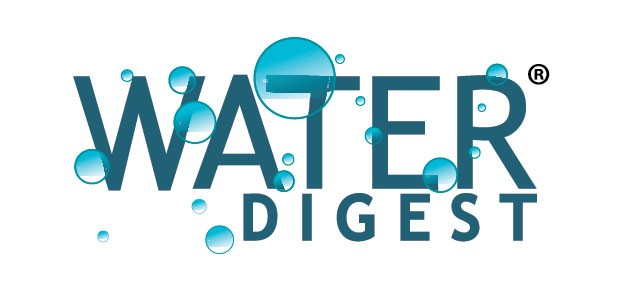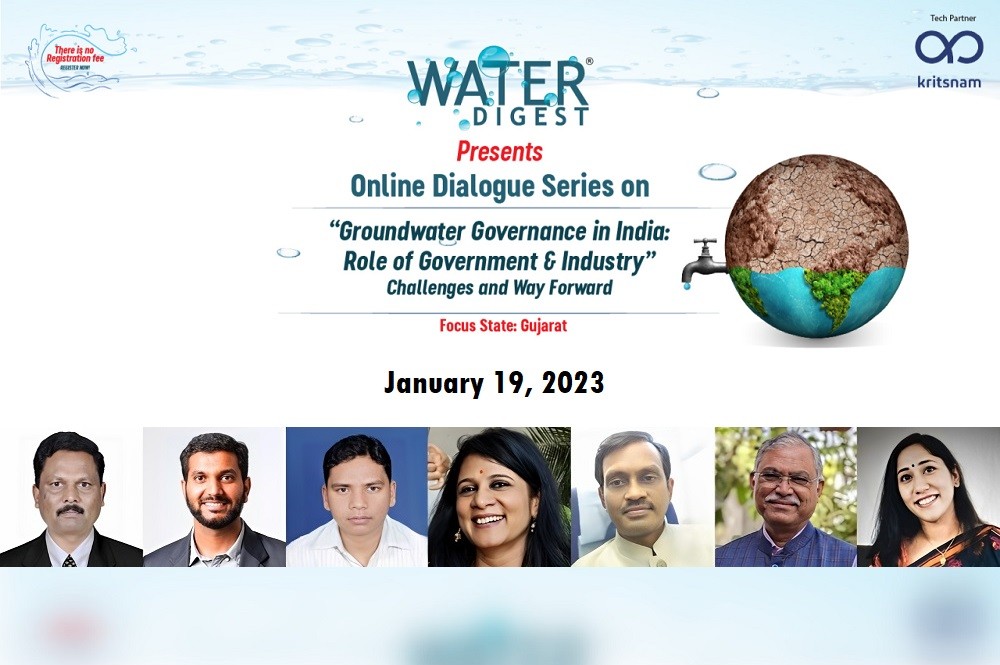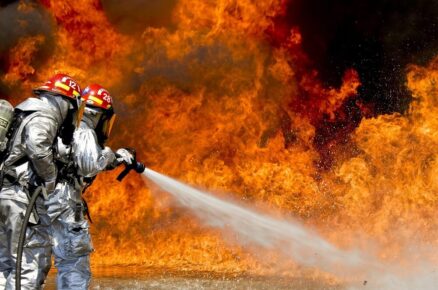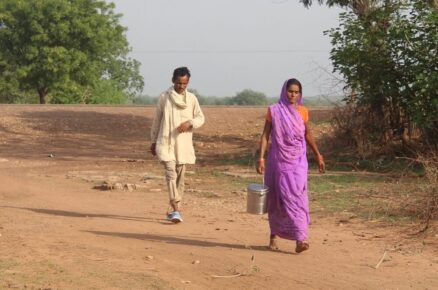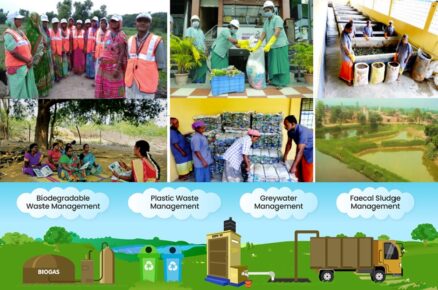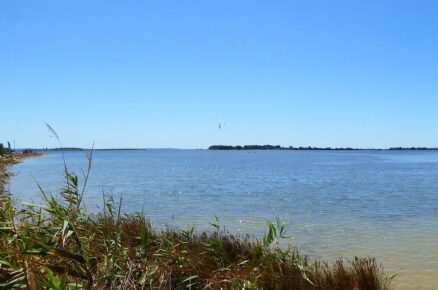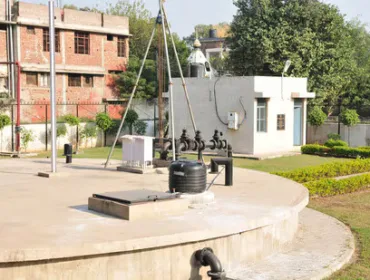WD News: Water Digest, in collaboration with Kritsnam Technologies Pvt. Ltd., organised the third edition of its online Water Dialogue Series on January 19, 2023, to highlight and discuss the need for smart and sustainable groundwater management in industrial, commercial and agricultural sectors.
The focus state of this edition was Gujarat.
- The idea of this series is to make every person value the role of sustainable groundwater in our natural hydrological cycle because, groundwater is the soul of our Earth.
- The series aims to cover significant areas like groundwater extraction regulations for industries, infrastructure and mining projects, challenges faced by groundwater users in taking NOC and fulfilling the criteria, adoption of new guidelines on groundwater, framing regulations applicable to specific states, need for conducting water audits and compliance, smart technologies for users & regulators for sustainable usage of groundwater, improving, monitoring and data evaluation, and what more to expect in future in terms of regulations.
Shri G Krishnamurthy, Regional Director, Central Ground Water Board, West Central Region, Ahmedabad gave the keynote address. He emphasised that the governance of groundwater is important for the survival of humanity. He further explained the background and role of the Central Ground Water Authority and its role in groundwater governance. He said that at present, 17 states and 3 union territories are following the regulating groundwater authority and 11 states and 5 union territories have their own regulation.
In Gujarat, 9693 applications were received for NOC, out of which 3016 applications have been issued the NOC, 1868 applications got exempted under the category of micro/small industry project (i. e. less than 100 KLD per day), 499 applications are in process, while 4324 applications were rejected for non-compliance and non-submission of mandatory documents and abstraction charges.
He informed the attendees that, apart from this, they had received 440 applications for the renewal of NOC, out of which 174 applications were approved, 57 are exempted and 89 are in process while 187 applications were rejected.
This was followed by a Technical Session on Groundwater Governance in India: Role of Government & Industry (Focus State: Gujarat).
Shri Vinay Chataraju, Co-Founder, Kritsnam Technologies presented his thoughts alongwith an analytical review of the current scenario and future roadmap on the theme of groundwater governance. He began his address with the background of his organisation and went on to focus on the issue of groundwater depletion in detail.
Supporting his views, he shared that as per a FICCI report, 83% of industries have reported a major risk of inadequate availability of water whereas 62% of Indian businesses depend on groundwater sources. He highlighted that India needs data-driven water management. Going ahead, he shared the important steps to be taken in this direction. The first step, he said, is to know the water footprint from all sources, the second is internal water budgeting, and the third is benchmarking with peers (water intensity ratio).
He proceeded to explain the features and benefits and groundwater data collection instruments like Piezometer/DWLR (used to monitor the depth of water level from the ground surface) and Digital Flow Meters (used to monitor the quantum of water abstracted). He explained the necessity of a data-driven groundwater policy. He gave a detailed overview of Dhara Smart Ultrasonic Flow Meters and shared its mobile and web applications for easy data access, which can be used for industrial metering and industrial water monitoring.
Dr KM Nayak, Scientist-B, Central Ground Water Board, West Central Region, Ahmedabad explained the notified guidelines to regulate and control groundwater extraction in India, in detail. He gave an overview of the background and applicability of the guidelines alongwith exemptions, documents required for industry projects to obtain the NOC, groundwater restoration, abstraction charges, and the overall application process.
He further explained the concept of the stage of groundwater development (ratio of annual groundwater draft and net annual groundwater availability in percentage), and shared that in Gujarat, the present stage of groundwater development is 54.88 per cent, as per GWRA 2020.
He cautioned the industries that all project proponents drawing groundwater who fail to apply for NOC are liable to face legal action and pay environmental compensation for the illegal withdrawal of groundwater.
Ms Rekha Shaikh, Dy. Environment Engineer, Gujarat Pollution Control Board (GPCB), Vadodara shared her views on groundwater governance.
She explained the role of GPCB for industries in getting the NOC from CGWA for fresh as well as renewal applications for which GPCB’s approval is mandatory.
She shared a few cases of mismanagement of waste in a few regions of Gujarat (that caused the rise in the contamination of the borewells and in the TDS values) to explain the significance of awareness on the subject matter.
Shri Rajendra K. Banker, Groundwater Consultant, Reva Consultancy presented the industry perspective. He began his address by emphasising the need of bringing awareness by creating programmes for the industry leaders by the CGWA.
He suggested that district-wise or taluka-wise industry programmes be devised in which industries could learn about water conservation and water use efficiency. This will create an industry-friendly environment in the region, which would be crucial in the successful implementation of new guidelines.
He also advocated an easier system of application and processing in which the industry could get a provisional NOC at the time of the application, with full scrutiny at the time of the renewal.
Shri Kishore Babu, Head Safety and Environment Compliances, Adani Airport, Ahmedabad shared the best practices being applied in their manufacturing plants and industrial premises for optimum water use efficiency and overall measures taken for reducing the dependence on groundwater usage.
He shared the applications and benefits of water meters, which they have installed at various locations in their premises, at the groundwater borewells as well as other locations, as necessary, to measure the exact quantity of groundwater being used. This has resulted in measuring the exact groundwater consumption at various points, which has helped in better groundwater management strategies.
Ms Anupama Madhok Sud, Director & Editor, Water Digest, moderated the event and in her address, she said that it is very important to understand what are the key challenges to water security. This includes urbanisation, industrialisation, and declining per capita water availability.
She highlighted that we are already in a water stress situation and it is always good to understand and discuss the policies and guidelines which are supporting the ongoing initiatives. In this direction, the current series on groundwater governance can be a meaningful platform, she said.
The participants shared their queries in a Question & Answer (Q&A) session after the technical session which were answered by the panellists.
The queries ranged from the pendency of an application for NOCs, problems arising in the online registration process and uploading the necessary documents, issues related to OTP verification, the possibility of application of flow meters in wastewater & sewage collection and systems, and requirements of groundwater impact assessment study in different industrial regions, etc.
The panel of speakers responded to all the queries and shared their expert views on the subject.
Click here to watch the complete session.
